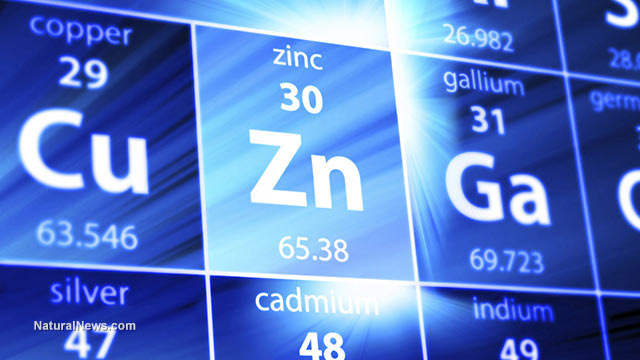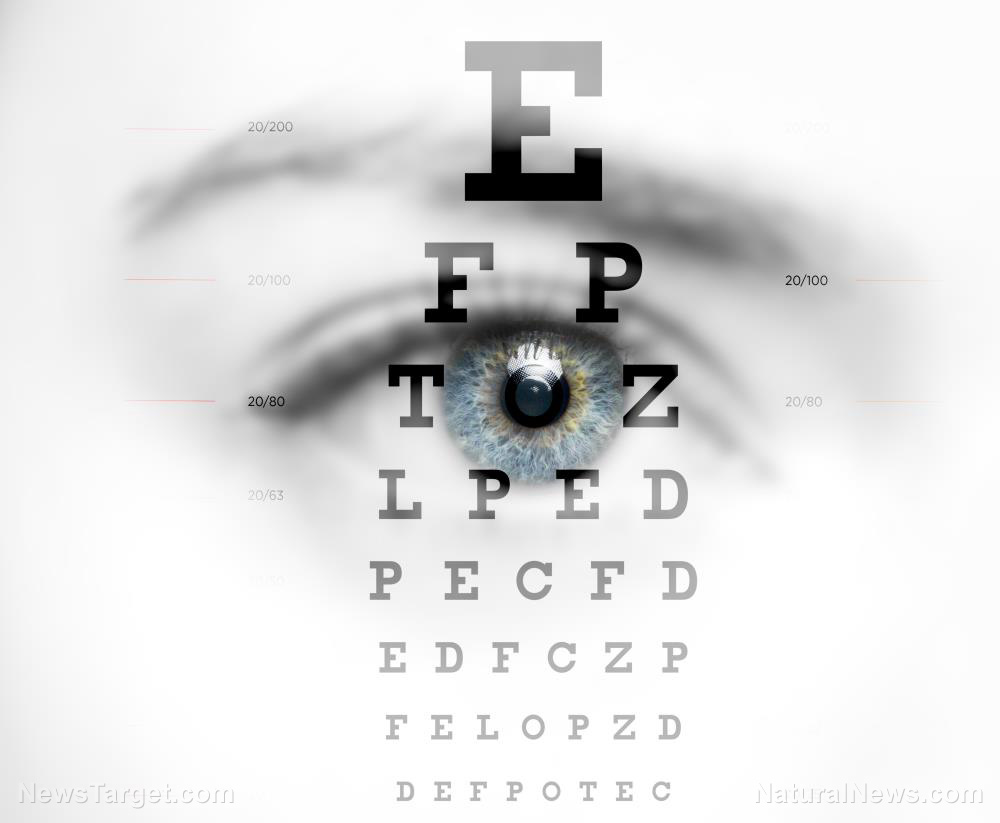Worried about high blood pressure? Check your zinc levels
07/23/2019 / By Edsel Cook

Researchers found a link between low levels of zinc and the risk of high blood pressure. They theorized that patients with deficiencies in the vital mineral may be more vulnerable to hypertension.
According to studies, there is a connection between hypertension and zinc: The lower the level of the nutrient in the body, the greater the risk of high blood pressure. Despite this finding, scientists are yet to identify the role of zinc in the development of hypertension.
Both zinc deficiency and high blood pressure appear together in patients with chronic kidney disease, Type 2 diabetes, and other medical conditions. Their joint emergence makes it hard to tell if the insufficient amount of the nutrient causes blood pressure to go up or if it’s the other way around.
On the other hand, some studies report that patients with zinc deficiencies tend to be hypertensive as well. In a 2002 animal study, Saitama Medical University researchers found decreased zinc concentrations in the blood of salt-sensitive, hypertensive rats. (Related: BREAKING: Big Pharma blood pressure drugs found laced with cancer-causing chemical; but FDA says don’t stop taking them.)
The possible role of zinc in hypertension
A research team from Emory University looked into the connection between zinc levels and blood pressure. They focused on the biochemical interactions of the two conditions.
Sodium absorption helps regulate blood pressure levels. In the kidneys, sodium chloride cotransporter (NCC) recovers sodium from fluid that is bound to become urine and returns it to the body.
Lower sodium concentrations in the urine correlates with high blood pressure. This is due to NCC returning more amounts of sodium while the urine gets rid of less. As a result, blood pressure rises.
“Renal modulation of urinary sodium excretion is the cornerstone of [blood pressure] control,” the researchers noted in their paper.
The amount of sodium reabsorbed or expelled by the body can be influenced by the interaction of several proteins with NCC. Although the researchers still don’t have any evidence, they believe that zinc affects at least one of these proteins.
Zinc is a cofactor. As such, it can influence the activity of different kinds of protein, such as enzymes, regulatory proteins, and transcription factors.
Zinc deficiencies lead to increased sodium and high blood pressure
For their study, the Emory researchers investigated the connection between zinc and hypertension. They also scrutinized the activity of NCC.
In one of their experiments, they put mice on a diet with low amounts of zinc. Deprived of the nutrient, the animals developed high blood pressure.
The researchers then divided the hypertensive mice into two groups. One group received food that contained sufficient zinc. The blood pressure of the animals in that group eventually normalized.
Meanwhile, the other group received hydrochlorothiazide, a drug that can inhibit NCC. Because the drug prevented the reabsorption of sodium, the mice were able to expel excess sodium out of their bodies through their urine. As a result, their blood pressure also returned to normal.
The researchers performed other experiments using animal tissue. Through these experiments, they confirmed that high NCC activity is what leads to hypertension associated with insufficient zinc levels.
They also found that zinc directly affects the activity of NCC. When zinc levels are low, NCC activity increases.
The Emory researchers reported that NCC gains more stability when the concentration of zinc is very low. Under this condition, NCC functions for longer periods and returns more sodium to the body, thereby increasing blood pressure.
“Understanding the specific mechanisms by which [zinc deficiency] contributes to [blood pressure] dysregulation may have an important effect on the treatment of hypertension in chronic disease settings,” the researchers concluded.
Sources include:
Tagged Under: cardiovascular health, discovery, heart disease, high blood pressure, hypertension, nutrition, research, sodium, sodium chloride cotransporter, sodium reabsorption, zinc, zinc deficiency
RECENT NEWS & ARTICLES
AgingSecrets.News is a fact-based public education website published by Aging Secrets News Features, LLC.
All content copyright © 2018 by Aging Secrets News Features, LLC.
Contact Us with Tips or Corrections
All trademarks, registered trademarks and servicemarks mentioned on this site are the property of their respective owners.



















